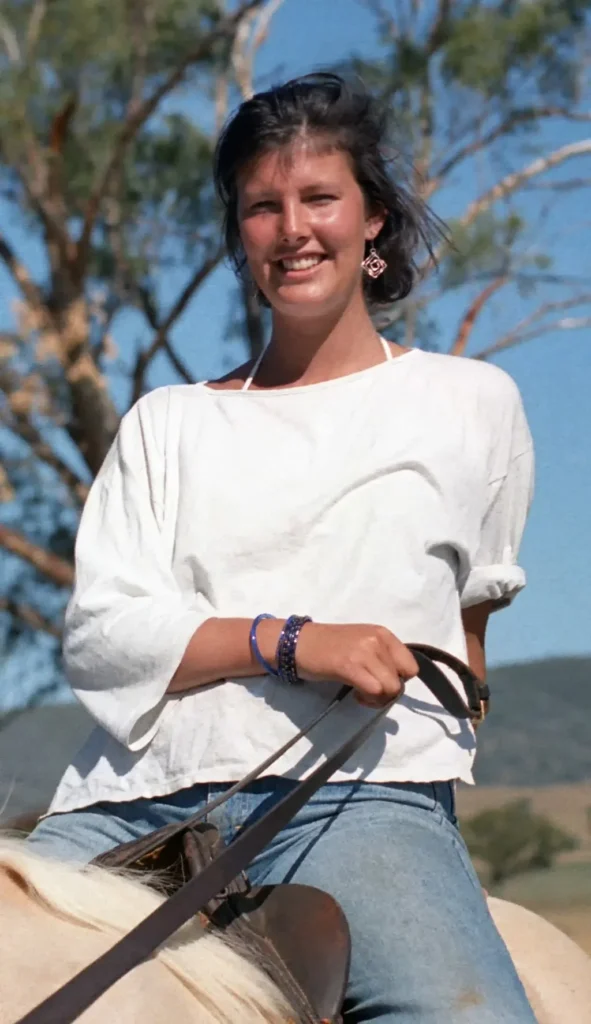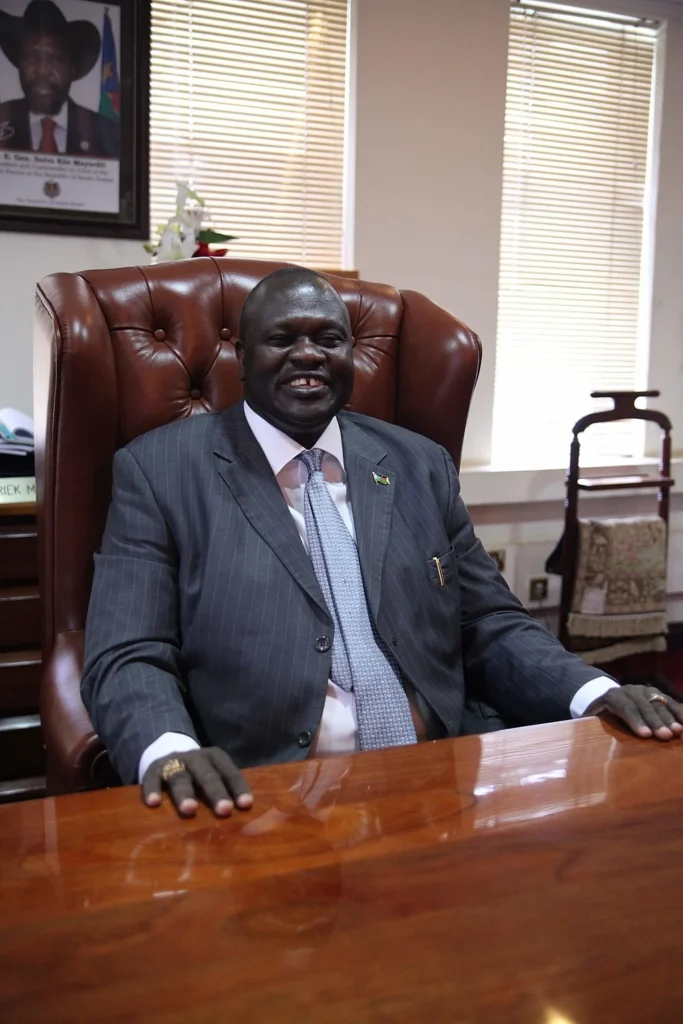
Emma Rose McCune grew up in England, surrounded by comfort, privilege, and the quiet structure of upper-class life. Though she was born in India, she spent much of her childhood in Lisburn and later in Belfast, where her father worked as a British diplomat. Her education followed the expected path of private schools and polished universities. She studied art in London and seemed headed for a career filled with gallery openings and charity dinners. But she was restless. She wanted intensity, disruption, and something that felt real.
In the late 1980s, Sudan was deep in civil unrest. The north and south were locked in conflict, and the fighting had pushed families out of towns, shut down roads, and scattered communities across the countryside. Armed groups moved through rural areas while the government launched military responses that often struck civilians harder than fighters. Aid groups operated in the gaps, trying to keep schools open and children alive.
Emma McCune joined one of them. She took a job with Street Kids International, a Canadian organization working inside Sudan. She arrived in Khartoum, crossed into the south, and began moving through the regions hardest hit by the conflict. Her work was focused on education. She visited destroyed schools, spoke with teachers, and helped distribute supplies. She stood out in every way, but she made herself part of the landscape through persistence.
She rode in battered trucks, dressed like the women around her, and pushed through terrain that made most outsiders turn back. Her accent marked her, and so did her appearance, but she insisted on showing up, even when other aid workers avoided the area.
It was during one of these trips that she met Riek Machar, a commander in the Sudan People’s Liberation Army. He had studied in England and the United States, earned a PhD in engineering, and returned to fight in the name of southern autonomy. He was polished, powerful, and deeply controversial.
Emma was drawn to him quickly. She saw intelligence, strength, and the possibility of real change. Their relationship moved from conversation to partnership in a matter of months. She resigned from her position with the aid organization and stepped directly into his world.
To her friends and colleagues, the decision was hard to understand. She had crossed from humanitarian work into armed politics. Those who once supported her began pulling back. She remained convinced that she had made the right choice. In her view, Machar had both the vision and the force to rebuild Sudan.
What began as a mission to support classrooms had now become something else entirely. Emma McCune had placed herself beside a man with an army and a fractured country at his back.
From Classrooms to Compounds
Once Emma McCune left her role with Street Kids International, her life changed quickly. She became the wife of Riek Machar, one of the most powerful men in southern Sudan. Her surroundings shifted from classrooms and village meetings to guarded compounds where politics shaped every conversation. The world she entered ran on loyalty, influence, and risk. Every visitor came with an agenda, and every decision had a consequence.
She stepped into her new position with full commitment. Emma arranged meetings, typed correspondence, and traveled with Machar as he met with diplomats, journalists, and rebel commanders. Some accounts suggest she edited his speeches and helped manage his public image. She moved between languages and cultural boundaries with an ease that made her visible in every room and difficult to categorize.
Her story now draws comparisons to Corinne Hofmann, another European woman whose life took an unexpected turn in East Africa. Corinne fell in love with a Samburu warrior in Kenya and gave up her life in Switzerland to live in a rural hut with him. She adjusted to a new rhythm of survival but eventually left and returned home, raising her daughter away from the uncertainty she had once embraced.
Emma McCune moved in the opposite direction. She stepped deeper into conflict and further into the infrastructure of rebellion. Her marriage to Riek Machar gave her a new title and greater visibility, but it also tied her to a web of decisions made in strategy meetings and negotiated across battle lines. She rode in convoys, stayed in field camps, and stood at his side during moments that shaped the course of the civil unrest. To those observing from the outside, she was no longer navigating aid work. She had become part of the political machine.
During this time, Machar’s position within the Sudan People’s Liberation Army became unstable. He broke from the central leadership and formed his own faction, fracturing the movement and intensifying the violence. Civilians were caught between opposing forces, and the fighting became more complex. Emma stayed through it all.
No interviews, letters, or public reflections from Emma survive from this period. Her voice is absent from the official record. What remains are press reports, notes from aid workers, and the memories of those who watched her cross the line from foreign volunteer to embedded figure.
Emma McCune believed in the future she was helping to shape. To those around her, the vision was never entirely clear.

A Sudden End and an Unwritten Future
In 1993, Emma McCune passed away in Nairobi at the age of twenty-nine, after being struck by a matatu while traveling between meetings. Her cause was recorded as blunt force trauma, with no suggestion of foul play. She had been expecting her first child.
The news reached aid networks and diplomatic circles within hours. Obituaries appeared in British newspapers, and conversations began again in the hallways of organizations that had once worked beside her. Some remembered Emma as a passionate force who had placed herself exactly where most people refused to stand. Others found it harder to separate the woman from the choices she had made.
After her final days, Riek Machar continued leading his breakaway faction. The civil unrest in Sudan pressed on, reshaping alliances and scattering entire communities. Emma McCune’s name slowly slipped from international headlines, but her story remained an unresolved presence. People still wanted to understand why she made the choices she did and what she had believed would come from them.
Her legacy took a more public shape when journalist Deborah Scroggins published Emma’s War. The book offered a detailed account of her time in Sudan and her relationship with Machar. It examined her rise from volunteer to political wife and placed her alongside soldiers, diplomats, and displaced families. The story avoided simple conclusions. It portrayed Emma as complex, reckless, intelligent, and idealistic. Readers in cities from London to Seattle searched for the book, looking for clues to explain her life and passing away.
Her home near the front lines was left behind when the conflict moved on. Her personal papers were never made public, and she gave no interviews or written reflections to explain her choices. Years later, people still search her name, often pairing it with words like Instagram, UCSF, or obituary, hoping to understand who she was.
Her name also lives on in the memory of Emmanuel Jal, the former child soldier she helped rescue from Machar’s militia. Jal has credited Emma with saving his life. His music carries pieces of her story into spaces she never could have imagined. She is mentioned in lyrics, interviews, and documentaries that follow the arc of children pulled from war.
The woman who had once walked into Sudan to teach children became a figure caught between myth and memory. Her name continues to echo because her story refuses to settle.

